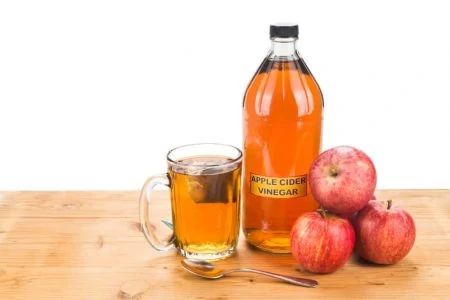Are you the type who wants to stack the deck to ensure a healthy pregnancy?
While some things are out of your control, you can improve your odds of having a healthy pregnancy if you watch your behavior and habits.
We’ve spoken with a variety of medical practitioners to create this guide and give you our top 20 tips for a healthy pregnancy.
Key Takeaways
- Attend prenatal care appointments and childbirth classes for a healthy pregnancy.
- Take prenatal vitamins, eat healthily, and stay hydrated to support your baby’s growth.
- Exercise regularly, manage weight gain, and avoid alcohol, smoking, and excess caffeine.
- Review medications, limit exposure to chemicals, and avoid hot tubs for your baby’s safety.
Tips for a Healthy Pregnancy
Many women don’t start concentrating on healthy pregnancy habits until they find out they are pregnant. But, if you’re planning a pregnancy, it’s best to start these habits before conception.
1. Make and Keep Your Prenatal Care Appointments
Your medical appointments are a huge factor in the health and outcome of your pregnancy. If you don’t make and keep your appointments, you run the risk of having something go wrong in your pregnancy that might have been easy to avoid if you were seeing your health care practitioner.
You don’t want to put your health or your baby’s safety at risk, causing additional worry and more medical appointments.
2. Go to a Childbirth Class
Learning what to expect and how to control your breathing can help you have a healthy pregnancy. You might need less or even no medication during your labor if you learn the ropes at a childbirth class (1).
3. Speak to Your Doctor
It can be tempting to bury your head in the sand when things start to go wrong. Sometimes that’s easier than the fear of addressing your problems and realizing that things are off.
Some women have trouble asking for help when they need it, and others don’t like to make a big deal out of something that potentially isn’t a problem to begin with. For that reason, women can be hesitant to call their doctors when they have a question.
But pregnancy isn’t a time to be meek or timid — it’s a time to make sure you’re doing everything right for your baby. Practice that assertiveness because you’re going to need it as a parent. If you have a question, call your doctor and ask it, with no apologies. Remember, two lives are counting on you.
4. Take a Prenatal Vitamin
If you plan to get pregnant, you should begin taking a prenatal vitamin before you actively start trying. Getting that folic acid in your body so it’s available to your baby as soon as they are conceived can help prevent neural tube birth defects like spina bifida (2).
In addition to the folic acid, you’ll also need the other vitamins and minerals in these vitamins, like iron and calcium, during pregnancy.
5. Eat Healthily
You’re going to face a lot of cravings during pregnancy, and it’s okay to give into some of them. But the majority of the time, you should eat healthy foods because they are the best option for your baby.
First off, you need to forget this whole eating-for-two thing. During pregnancy, you only need an additional 300 calories per day. That breaks down to one extra healthy snack.
To eat healthily, you should include all the food groups whenever you can during a meal and put a high emphasis on eating fruits and vegetables (3). Make sure you’re also getting adequate amounts of grains, protein, and fiber too.
6. Watch the Seafood
Fish has long enjoyed a reputation as brain food because of its high omega 3 fatty acid content, which helps with brain development.
But, because some varieties of fish have a lot of mercury in them, women who are expecting should limit their intake to 12 ounces a week at the most.
A safer and healthier substitute can be to opt for plant-based sources of omega 3, such as flax seeds, walnuts, and chia seeds.
7. Stay Hydrated
Staying adequately hydrated can potentially ward off many pregnancy problems, including preterm labor, urinary tract infections, and constipation (4). Shoot for 10 cups a day, and remember, it doesn’t all have to be water — you can have milk, soup, or juice as well. But you might want to watch how many extra calories you’re taking in from fluids each day.
8. Exercise Regularly
Exercise helps your mental health by keeping stress at bay and giving you a healthy alternative to sitting around and worrying about things.
It can help keep your blood sugar in a healthy zone and ward off the extra pounds that could lead to complications during your pregnancy.
Also, the exercise you get will help your baby stay healthy. It increases the flow of oxygen to your baby, boosts their brainpower, and helps develop and strengthen their lungs.
9. Do Kegel Exercises
Kegels are exercises meant to make your pelvic floor muscles stronger. Because these muscles support your uterus, bladder, and bowels, doing this exercise can prepare you for the delivery process and stop you from struggling with incontinence after you have your baby.
Here is how you perform them.
- Do what you would do if you were peeing and suddenly had to stop — flex those muscles to stop that imaginary flow.
- Count to three while you’re squeezing those muscles.
- Relax and count to three.
- Do this exercise 10 times in a row, several times a day.
10. Get Enough Sleep
We sometimes can’t control how much sleep we get as insomnia, hectic schedules, and all kinds of things can impact sleep. But when you’re pregnant, you should strive to get as much sleep as you feel you need.
In addition to making you feel good, sleep can help ward off pregnancy and birth complications.
11. Manage Weight gain
The average woman should gain somewhere between 25 to 30 pounds during her pregnancy.
If you are underweight, your doctor may want you to gain more. If you have trouble gaining weight, you’ll need to talk to your doctor about food options that will help you pack on the pounds.
Women who are overweight may be told to gain a bit less than 25 pounds. That can be tricky when you feel super hungry at points during your pregnancy. Try to fill up on fresh fruits and vegetables for nutritious snacks that will keep your belly full for fewer calories.

12. Create a Birth Plan
You can’t depend on people to know your birthing plan wishes. Having a birthing plan and reviewing it with your partner and care provider can help you develop a realistic plan that everyone can live with.
A good plan should cover your preference for vaginal childbirth versus a C-section and any requests you have for labor, including whether you want to have an epidural. If you want a doula present, make sure your doctor knows that’s part of your labor plan.
13. Don’t Drink Alcohol
You may have enjoyed some wine after work before you became pregnant, but it’s one of those things you’re going to have to say goodbye to for a while.
If you don’t, remember that every sip of alcohol you take travels through the placenta into your baby’s bloodstream, putting your baby at risk of fetal alcohol spectrum disorder, among other complications (5).
Pregnancy is a time of sacrifice, but there are some amazing rewards too. And that will be crystal clear to you once you’re holding your baby in your arms in the delivery room.
14. Review Your Prescription Medications
Everyone knows illegal drugs are a huge no-no when you’re pregnant because of the birth defects and health problems they can cause for your baby. But what some women don’t realize is that prescription drugs and over-the-counter drugs can carry risks too — and they can be just as severe.
Review your prescription drug list and any other drugs you occasionally take with your doctor if you’re thinking about trying to conceive. He might want you to drop some of the items if they could potentially harm your baby.
Never stop any prescription medications without consulting your doctor first. Stopping your prescription medications without your doctor’s advice could also potentially harm your growing baby.
Editor's Note:
Jennifer Schlette, MSN, RN15. Limit Caffeine
Caffeine (like coffee and tea) isn’t good for you when you’re pregnant. It crosses the placenta and ends up in your baby’s bloodstream.
While your fully developed and bigger body can handle the caffeine, your baby’s tiny, developing body can’t process it as well. That means your baby feels the effects of that caffeine for a longer time than you do.
Take Note
16. Quit Smoking
No “butts” about it; you need to try to ditch those cigarettes while you’re pregnant. Staying away from tobacco will be healthier for both you and your baby. It might not be easy, but it is what’s best for your baby.
17. Stay Close to Home During Your Last Trimester
Some pregnancy problems, such as gestational diabetes and preeclampsia, typically rear their ugly heads in the last trimester. Although it’s possible to develop complications at any point in your pregnancy, the last trimester is a prime time for them.
By staying within an hour or two of your home during those final weeks and avoiding travel, you’ll be able to be close enough to your doctor that you two should be able to spot any problems ahead of time. Plus, you won’t run the risk of having to deliver your baby with an unfamiliar doctor in a strange city, like you might if you were traveling and went into early labor.
18. Avoid Harsh Cleaning Products
Everything you breathe in, touch, or use can impact your baby and you. That includes cleaning supplies. While you’re pregnant, you might want to consider some all-natural cleaning products instead.
19. Stop Handling Kitty Litter
Used kitty litter can be dangerous for pregnant women to handle because they can get toxoplasmosis, an infection involving parasites, from their cat’s feces. Your baby could then get it from you, and it could even cause birth defects (7).
So do your baby a favor, and let someone else handle the kitty litter chore during your pregnancy.
20. Stay Away from Hot Tubs
Hot tubs may feel relaxing, especially when your muscles are feeling additional strain. But your baby won’t appreciate the heat as much as you do. If you’re in a hot tub for very long, your temperature can be raised enough that it can be dangerous for your baby.










